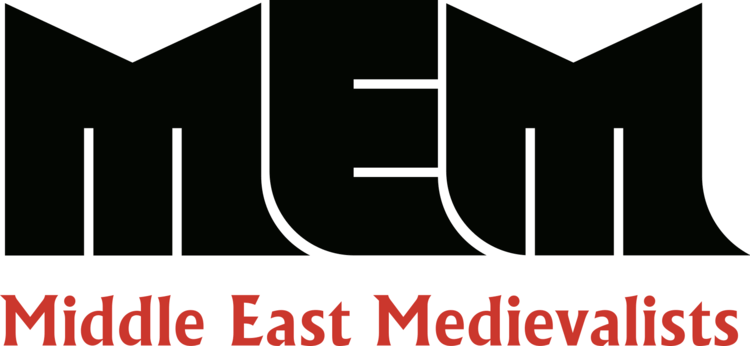Middle East Medievalists awards a biennial Book Prize to recognize significant contributions to the study of the medieval Middle East. Authors must be current members of Middle East Medievalists in order to be considered.
2023
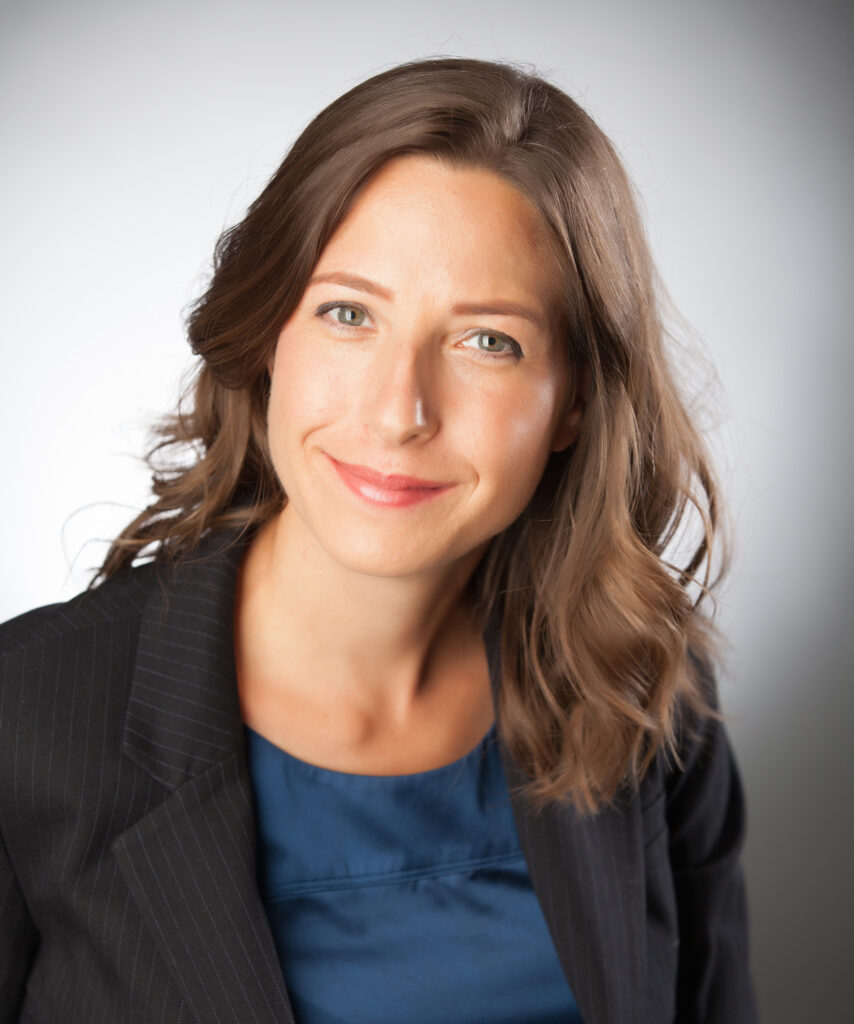
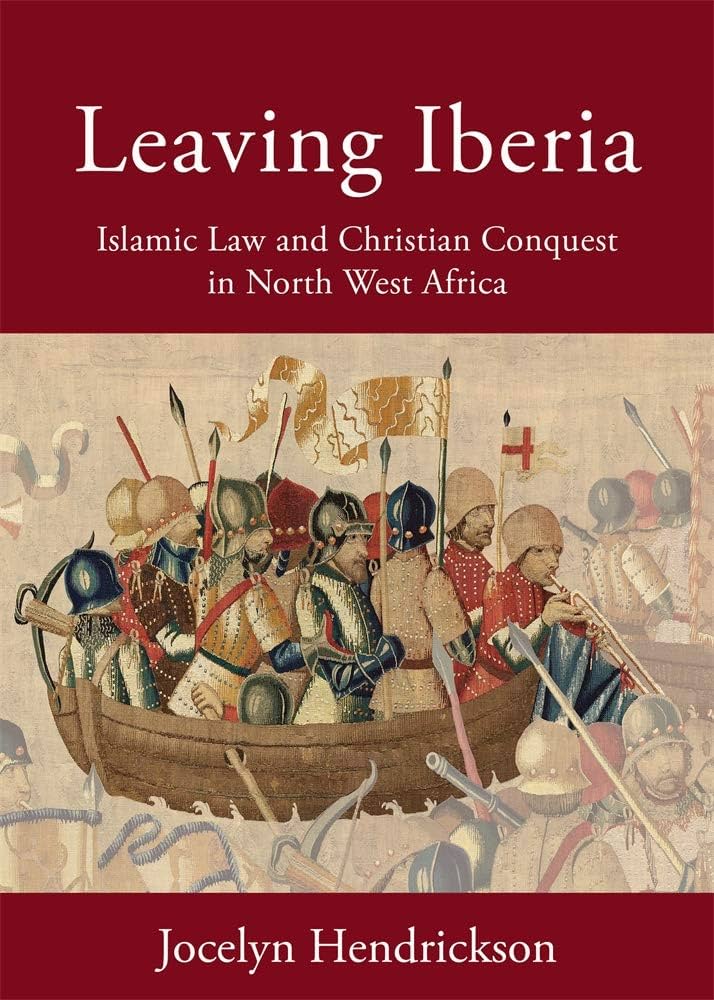
Jocelyn Hendrickson, Leaving Iberia: Islamic Law and Christian Conquest in Northwest Africa
Jocelyn Hendrickson’s Leaving Iberia (Harvard University Press, 2021) initially seems like a straightforward study of legal opinions (fatwas) pertaining to Muslims living under Christian rule during the so-called “Reconquista.” These well-known fatwas are often used as important sources for the study of al-Andalus in a period of transition. Hendrickson, however, inverts our understanding of the importance of these texts by integrating North Africa into a continuous and singular history of the Muslim West. Her meticulous work demonstrates the ways in which legal fatwas about migration were motivated by specific local political concerns, as opposed to a larger abstract ideological stance. In addition to shedding new light on these texts, Hendrickson forces us rethink the history of the region and makes us aware of how much our understanding of that history is shaped by modern categories of nation-states and modern political concerns. This is particularly apparent in the final section of the book, which traces the reception and use of pre-modern migration fatwas in colonial Algeria and Mauritania. Hendrickson’s writing is beautiful and engaging. She manages to convey the complexity of legal theory in an accessible form for scholars outside the field while also mining it for a dynamic social history oriented toward North Africa. The monograph promises to transform the scholarly understanding of the historical relationship between Iberia and North Africa. The jury was unanimous in its choice of Leaving Iberia as the winner of the 2023 MEM Book prize.
Honorable Mention
Reyhan Durmaz, Stories Between Christianity and Islam
Reyhan Durmaz’s Stories Between Christianity and Islam (UC Press, 2022) sets out to perform a seemingly simple task, one that might appear obvious, if much-neglected—and a task that it achieves brilliantly. This is the matter of understanding how stories, and the persons of storytellers, acted as means of transferring history, religious beliefs, and rituals in the late antique and early Islamic periods. By undertaking an impressive study of storytellers/performers and their stories, Durmaz makes profound observations about the origins, dissemination, and power of devotional stories that form the backbone of religious texts, including the Qur’an itself. In the process, she analyzes the stories originating from a Christian background in their Islamic context, revealing fascinating details about the tellers of such stories, their audiences, and the reception of these narratives in the late antique world. Her observations, framing, and methodology will have profound effects on our study of Islamic historiography, the origins of Islam itself, and the connections between Islam and Christianity in late antiquity and beyond.
Kristina Richardson, Roma in the Medieval Islamic World
In Roma in the Medieval Islamic World (I. B. Tauris, 2022), Kristina Richardson reconstructs the story of printing starting in Asia in the 700s, moving westward and “incorporating technological developments, like movable type, along the way.” The book draws on an astonishing variety of evidence—textual and material—to argue that printing emerged from a set of technologies of long standing in the Islamicate world, including block printing and the modular letter-stamps for making coin molds. The vectors of technological diffusion were the Banū Sāsān, a socially marginal group attested as ghurabā’ in Egypt and Sudan, kurbat in Syria, gurbet in Ottoman Turkish, rom gurbet in the Balkans, Cyprus and Crimea and gharīb in Tibet. Richardson traces ghurabā’ migration patterns, professional networks and spoken dialects through published and unpublished sources, reconstructing a glossary of their language, Sīn or Sīm, and recovering the existence of a printing lexicon in pre-1450 Arabic texts that previous scholars had understood to be scribal errors. Richardson persuasively demonstrates that the ghurabā’ maintained a monopoly on print technology from the tenth century to the fifteenth, at which point they migrated from the Ottoman lands to Bavaria and Bohemia, bringing woodcut technologies with them. In the final chapter, she deals a serious blow to the standard account of Johannes Gutenberg’s invention of movable type. Printing, Richardson argues, was an Afro-Asian technology that came late to Latin Christendom; the matrices of its diffusion were outcasts in both Islamicate Middle Eastern and European Christian societies alike.
2021
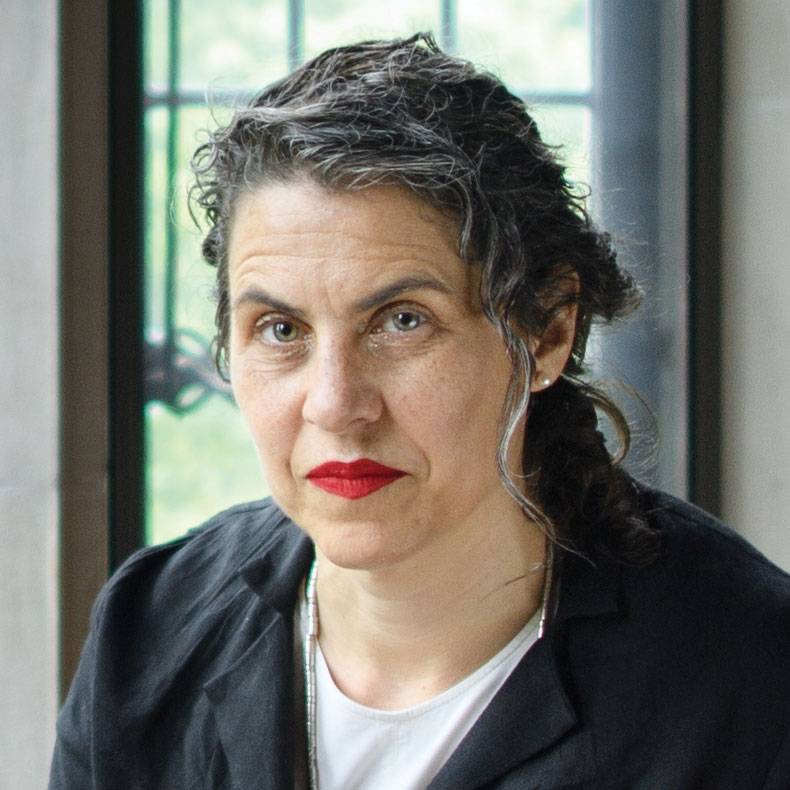

Marina Rustow, The Lost Archive: Traces of a Caliphate in a Cairo Synagogue
Marina Rustow’s The Lost Archive (Princeton, 2020) is a powerful corrective to the study of the early Muslim world that dispels the false assumptions that pre-modern Muslim states lacked archival practices as a result of some kind of deficiency in the strength of state institutions. In making this important point, Rustow embarks on an ambitious survey of the surviving Cairo Geniza, focusing not just on the texts themselves but on aspects of composition, reception, and materiality. The resulting portrait of Fatimid governance is remarkable in its depth and richness. In addition to this already significant contribution, Rustow provides a detailed survey and history of the existing sources.
The members of the selection committee were unanimous in their praise of The Lost Archive, describing it as “not only the best book of Medieval Middle East history published in the last two years but a model for how to creatively rethink the discipline of history writ large, beyond the Europe-as-normative foundations of the field.” Another member characterized it as “an extraordinary book, one like no other in the field, closer to a work of art.” Overall, this book is one of those rare field-changing works whose impact will be felt for many years.
Honorable Mention
Hannah Barker’s That Most Precious Merchandise: The Mediterranean Trade in Black Sea Slaves, 1260–1500 (Pennsylvania, 2019) argues for an integrated approach to the study of the slave trade from the Black Sea through the Mediterranean, in both Christian and Islamic contexts. Barker uses a wide range of archival Latin, Italian, and Arabic sources to elucidate a conception of slavery that she argues was shared among the Genoese, Venetians, and Mamluks. Essentially, this vision of slavery was rooted in the idea that a human hierarchy was natural, that slaves occupied the bottom rungs of this hierarchy, that it was based in religious difference, and that anyone could be enslaved. By using both Italian archival sources relating to the trade of slaves and Arabic legal sources and chronicles, Barker is able to reveal a fuller picture of the phenomenon of slave trading than either set of sources could provide individually. This book constitutes a major contribution to the scholarship on how medieval people thought about difference and hierarchy, the mechanics of the slave trade, and the varieties of social trajectories that slaves could have in different Mediterranean contexts. The prize committee praised Barker’s “holistic Mediterranean perspective” and the book’s “excellent writing, conceptual clarity and organization, quantitative detail and visualization.”
In Islam, Literature and Society in Mongol Anatolia (Cambridge, 2019), A. C. S. Peacock demonstrates that Mongol rule was a watershed in Anatolia’s history. This period saw the conversion of a vast proportion of the population, the broader permeation of politics, society and culture with Islamic ideas, and the gradual rise of Turkish as a literary medium. Peacock shows that Anatolians were converting to Islam that was neither orthodox nor syncretic, but Sunni, anti-Christian and profoundly Sufi, infused with futuwwa ideals. His conclusions are based on a model feat of scholarship, including comprehensive examination of the entire corpus of extant Arabic, Persian and Turkish manuscripts and inscriptions produced in Anatolia in the thirteenth and fourteenth centuries, combined with the study of epics, archaeology, and administration. Adorned with elegant translations of Persian poetry and beautiful images of the manuscripts, this book will be the standard reference point for scholarship on the Turkification and Islamization of medieval Anatolia. In awarding this book honorable mention, the committee made special note of its “mature and nuanced” analysis that fills a notable gap in the field.
2019

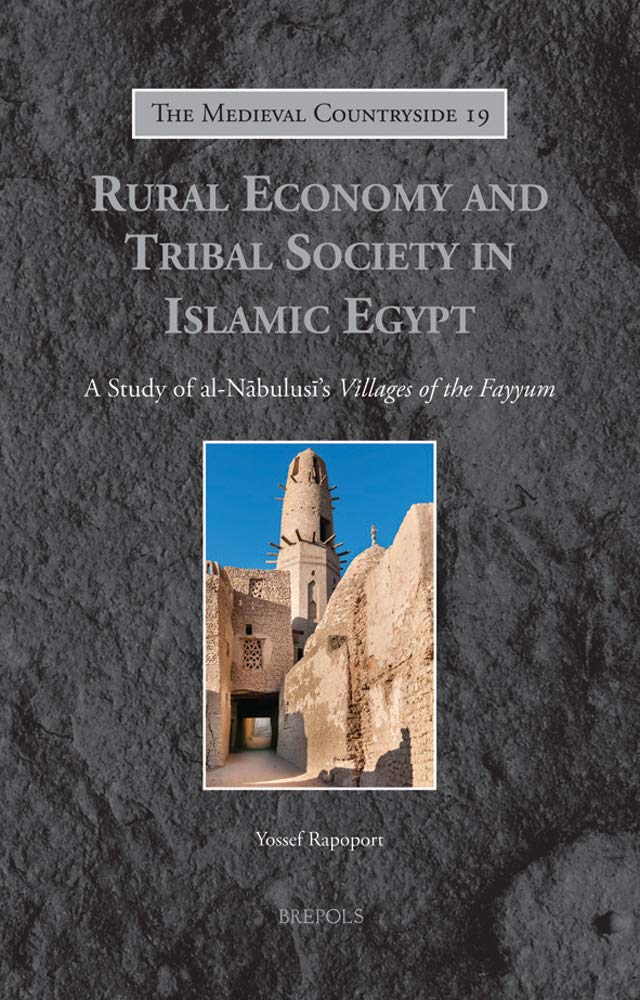
Yossef Rapoport, Rural Economy and Tribal Society in Islamic Egypt
In Rural Economy and Tribal Society in Islamic Egypt, Yossef Rapoport transforms a seemingly pedestrian source, a tax register for an Egyptian agricultural region known as the Fayyum in the mid-thirteenth century, into a fascinating panorama of the social and economic issues that affected rural areas in the Middle East from late antiquity through the medieval period. Thus, Rapoport’s book is, first and foremost, a welcome counter-balance to the urban bias of most scholarship in the field and as such provides a much-needed clarification of the ways institutions of taxation and land tenure that centrally involved rural spaces actually worked in those spaces. In tandem with the writing of this monograph, Rapoport collaborated with Ido Shahar to produce a new critical edition and English translation of the source at the heart of the study, al-Nābulusī’s Villages of the Fayyum, also published by Brepols in 2018. This has allowed Rapoport to cast fresh eyes on the text itself and to subject it to meticulous analysis using both quantitative and qualitative methods.
Each of the nine well-conceived chapters in Rural Economy and Tribal Society in Islamic Egypt provides insight into an important aspect of the political economy or social structure of the Fayyum and suggests its broader implications. For example, the book sheds light on such issues as subsistence strategies versus cash crops; changing modes of taxation; the workings of iqṭā‘ and waqf systems; the question of tribal and Arab identity; and the push-pull factors leading to the conversion of Coptic Christian communities to Islam. The numerous charts and maps that accompany the text represent eye-catching, effective modes of data visualization, and the publisher should be commended for the presentation of text, notes, and visuals throughout. However, this book achieves far more than simply using numbers to tell an untold story. It stands as an exemplar for how this kind of analysis can challenge prevailing notions about the social, economic, and political history of other agricultural areas in the medieval Middle East and beyond. Simply put, the committee thinks that this book has field-changing implications. For its eloquence, clarity, and breadth of impact, it is our distinct pleasure to award Rural Economy and Tribal Society in Islamic Egypt by Yossef Rapoport the 2019 Middle East Medievalist Book Prize.
This year’s committee was chaired by Zayde Antrim and included Najam Haider, Konrad Hirschler, and Sara Wolper.
Please also check out the other fascinating works on the 2019 Shortlist.
2017
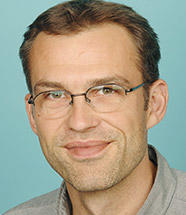
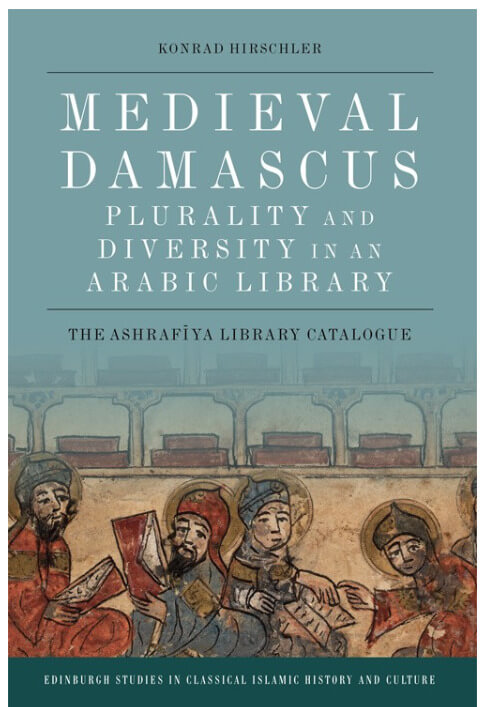
Konrad Hirschler, Medieval Damascus: Plurality and Diversity in an Arabic Library
In this impressive, multi-faceted work, Hirschler examines the catalogue of the Ashrafīya library in Damascus, a relatively small and short-lived collection, at least by medieval Damascene standards. Most scholars would find such a catalogue useful largely for determining what works were extant in Damascus in the 13th century, perhaps treating it as a smaller Damascene version of Ibn al-Nadim’s Fihrist, and pursue the matter no further. Hirschler, however, digs deeper, approaching the catalogue from several directions to produce a fascinating portrait of medieval Damascene book culture and intellectual life. In addition to identifying most of the books in the collection, including some obscure ones, he is able to trace the provenance of many of these works, determine what became of them after their dispersal from the library, and in some cases even identify the scribes who copied the works, discussing their careers and the significance of their employment to copy particular texts. Hirschler unearths details about the funding and management of the library, the system the curator used to classify and sort books in the collection, and even the arrangement of the books on the shelves. He also offers important insights into the patrons and sponsors of the library and how the collection was used.
Hirschler’s analysis of the catalogue is painstaking and impressively thorough. It offers significant new understandings of many facets of book culture and libraries as institutions in medieval Damascus. Yet, this is not all Hirschler offers. He also includes an edition of the catalogue text and a meticulously annotated translation. Hirschler’s work is a significant and, we anticipate, a long-lasting contribution to the field. We are pleased to recognize the importance of this work by awarding the first MEM book prize to Medieval Damascus: Plurality and Diversity in an Arabic Library.
This year’s committee was chaired by Steven Judd and included Zayde Antrim, Nancy Khalek, and Isabel Toral-Niehoff.
